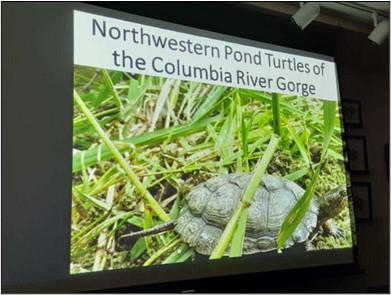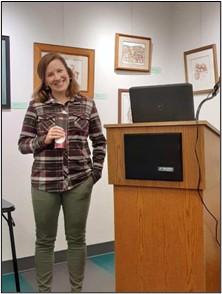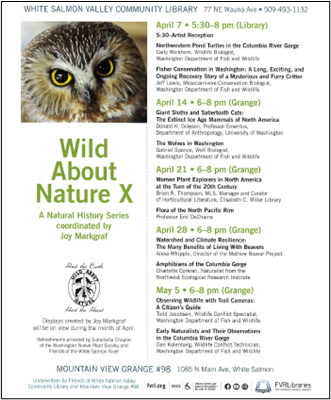Managing Wildlife Populations
Injured Bald Eagle: Biologist Wickhem responded to a report of an injured mature bald eagle along Highway 14 in Skamania County. Wickhem was joined at the location by the reporting party, who happened to be an experienced raptor-catcher. The eagle was not in a great spot. It was on a small patch of land between railroad tracks and the Columbia River. When the pair approached with their “catching gear", the eagle was able to muster a few stealthy hops and fly about 30 feet to perch on a tree branch over-hanging the river. With the eagle being somewhat mobile and in an impossible place to access, the pair decided to leave it be and hope for the best. Hopefully it will recover on its own without human intervention!
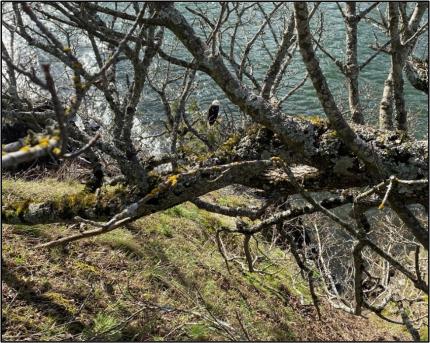
Winter Mudflow Elk Count: Biologist Stephens conducted a count of elk on the Mudflow Unit of the Mount St Helens Wildlife Area. This survey is done each month from December to April. A total of 193 elk were observed on the mudflow which included 60 bulls, 89 cows, 26 calves, and 18 elk that were unable to be classified.
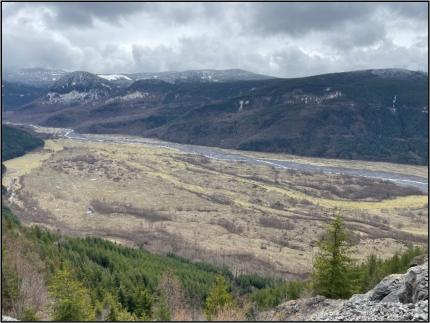
Willapa Hills Elk Survey: In March, biologists from Regions 5 and 6 conducted an aerial survey of the Willapa Hills Elk Herd. Given the large size of the herd area, normally the south half and the north half of the herd area are surveyed in alternating years. This year there was funding to survey both the north and south halves. The survey is a stratified random sampling design and a sightability estimate is applied to the data collected. The estimate for the north portion of the Willapa Hills Elk Herd area came to 1,441 and the estimate for the south half was 2,841. Both of these estimates are very similar to previous year’s estimates which indicate a stable population.
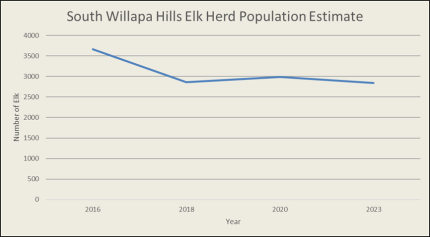
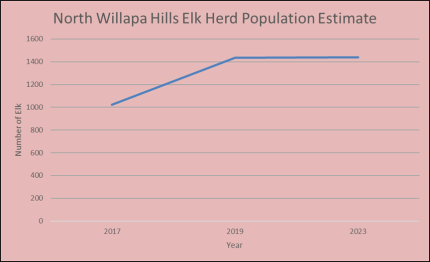
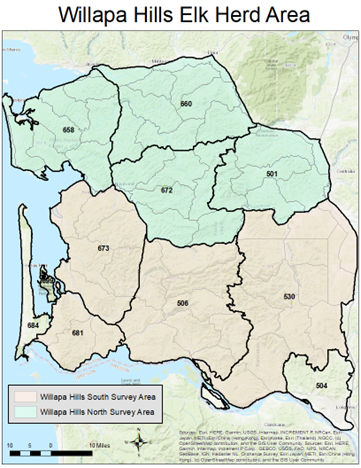
Oregon Spotted Frog Surveys: Biologists Wickhem and Bergh and Technician Motiff have spent many days since mid-March surveying for federally threatened Oregon spotted frogs at two sites in Klickitat County. Throughout the survey period, the trio were assisted by Herpetologist Hallock, Customer Service Specialist Splitgerber, Administrative Assistant Pool, Volunteers Castagnoli and Hanley, and Washington Department of Natural Resources Natural Areas staff members. The survey consists of walking transects through wetlands looking for Oregon spotted frog egg masses. Each egg mass represents two frogs which creates a population estimate for each site. The population count in Trout Lake Valley appears to be similar to last year, however the Glenwood Valley population estimate more than tripled compared to last year! A very welcome outcome after many years of declines in that area.
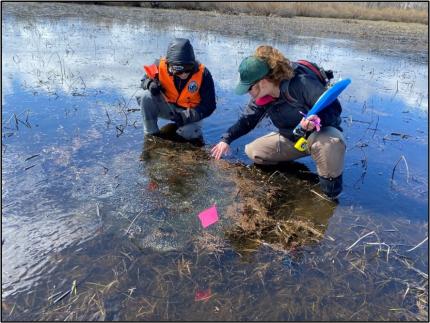
Conserving Natural Landscapes
Diversifying the Habitat: Manager Hauswald, Assistant Manager Breitenstein, and Assistant Manager Risley put in a long day to plant 1,100 native trees and shrubs at the Alder Creek Unit of the Mt. St. Helens Wildlife Area. These trees and shrubs were planted in areas that previously hosted dense stands of Douglas fir trees and little else. The Alder Creek Unit was thinned in 2018 to create more open habitat for elk and other wildlife species. Planting cottonwood, bitter cherry, elderberry, and vine maple in these thinned areas will further enhance the habitat by creating a more diverse, mosaic forest type that is more characteristic of a healthy Pacific Northwest temperate forest.
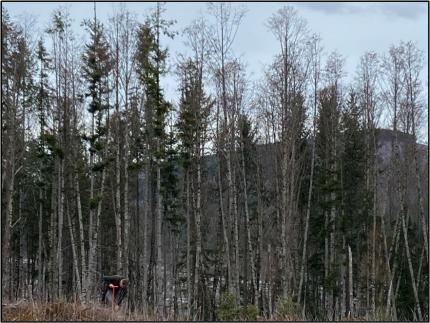
Providing Education and Outreach
Wild About Nature Presentation: Biologist Wickhem and Mesocarnivore Specialist Lewis presented at the opening night of the tenth Wild About Nature speaker’s series at the White Salmon Library. Wickhem spoke about northwestern pond turtles and Lewis presented about the reintroductions and monitoring efforts of Pacific fishers that have occurred throughout the state. The series is organized by a local artist and nature enthusiast and the White Salmon Library. It usually occurs once a week every April. This is the first series since events were suspended by the COVID-19 pandemic. As usual, the room was packed and attendees asked a lot of great, thoughtful questions. Wickhem is looking forward to upcoming talks by other WDFW staff members including Wolf Biologist Spence, Wildlife Conflict Specialist Jacobsen, and Wildlife Conflict Technician Kolenberg.
